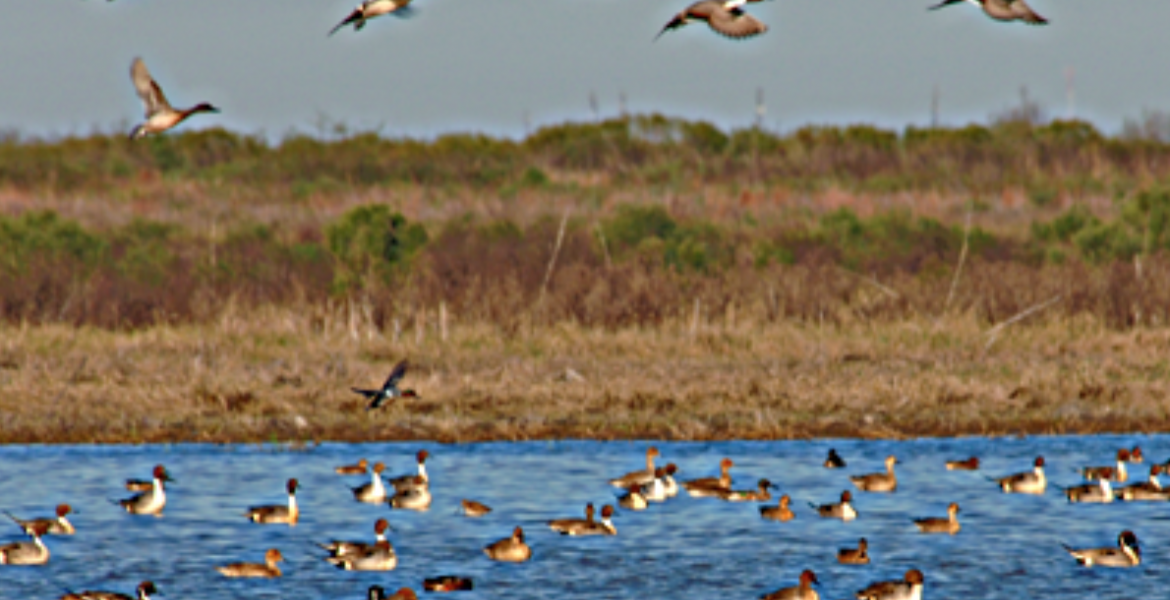AUSTIN – The Texas Parks and Wildlife Department (TPWD) has designated Lake Worth in Tarrant County on the Trinity River basin as “infested” with invasive zebra mussels. Infested status signifies that there is an established, reproducing population of zebra mussels in the lake. The designation is a result of recent sampling efforts.
"This finding that Lake Worth is fully infested is not unexpected,” said Raphael Brock, TPWD Inland Fisheries Dallas — Fort Worth Biologist. “There are two infested reservoirs upstream that can send zebra mussel larvae downstream to Lake Worth during high water events such as we’ve seen this spring to then settle in the lake. It is important for boaters to step up and follow TPWD guidelines and regulations to limit further spread to other reservoirs in the DFW area and other parts of the state.”
TPWD district fisheries management staff conducted shoreline surveys for zebra mussels at Lake Worth in August. They confirmed the presence of multiple size classes of zebra mussels which indicated an established, reproducing population, and the mussels were fairly abundant and easy to find. As a result, the lake status will be upgraded from positive to fully infested. Zebra mussels were first found in the lake in 2016, when only a few, similarly sized settled mussels were discovered.
Since 2017, the Tarrant Regional Water District has conducted periodic plankton sampling which detected small numbers of zebra mussel larvae each year except for 2019. The shoreline surveys conducted by TPWD in August provided evidence of an established reproducing population.
"Unfortunately, zebra mussels have now spread to 34 Texas lakes, with 28 fully infested, but there are far more lakes that still haven’t been invaded and are at risk,” said Brian Van Zee, TPWD Inland Fisheries Regional Director. “Each boater taking steps to clean and drain their boat before leaving the lake and allowing compartments and gear to dry completely when they get home can make a big difference in protecting our Texas lakes.”
Because zebra mussels are most often transported on or in boats, boaters play a critical role in preventing them from spreading to new lakes. Zebra mussels attach to boats and anything left in the water, including anchors, and can survive for days out of water, often hiding in crevices where they may not be seen easily. Their larvae are microscopic and invisible to the naked eye and can be unknowingly transported in residual water in boats. Boaters are urged to clean, drain and dry their boats and gear before traveling from lake to lake. Remove plants, mud and debris, drain all the water from the boat and gear, and then open up compartments once you get home and allow everything to dry completely for at least a week if possible.
If you have stored your boat in the water at a lake with zebra mussels or purchased a boat stored on one of these lakes, it is likely infested with zebra mussels and poses an extremely high risk for moving this invasive species to a new lake. Before moving your boat to another lake, call TPWD at (512) 389-4848 for guidance on decontamination. Other equipment stored in infested lakes such as barges, docks, hoists and pumps etc. are also potential vectors for spreading invasive species so those items also need to be fully decontaminated before transporting to another waterbody.
The transport of aquatic invasive species can result in legal trouble for boaters or transporters. Transporting prohibited invasive species in Texas is illegal and punishable with a fine of up to $500 per violation. Boaters are also required to drain all water from their boat and onboard receptacles, including bait buckets, before leaving or approaching a body of fresh water.
Additionally, anyone who spots zebra mussels on boats, trailers or equipment that is being moved should immediately report the sighting to TPWD at (512) 389-4848.
TPWD and partners monitor for zebra mussels in Texas lakes, but anyone who finds them in lakes where they haven’t been found before should report them immediately by emailing photos and location information to [email protected].
A status map showing all lakes where zebra mussels have been found in Texas is online at tpwd.texas.gov/ZebraMussels. For more information on how to properly clean, drain and dry boats and equipment, visit the TPWD YouTube channel for a short instructional video.
Information for marinas and owners or buyers of boats stored in the water on lakes with zebra mussels can be found on the TPWD website. To learn more about zebra mussels and other invasive species in Texas, visit tpwd.texas.gov/StopInvasives.
Subscribe to the LIVE! Daily
Required






Post a comment to this article here: